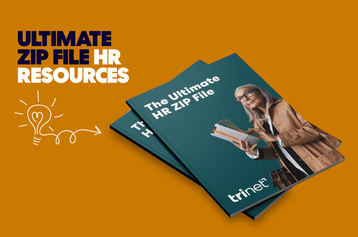
Everyone knows that a 401k plan benefits the employee. Company match programs and vesting options make them a no-brainer for staff. But did you know that an employer-sponsored 401k does also benefit the employer? If you’ve been thinking about offering retirement benefits to your staff, here are some benefits to consider.
How Does a 401k Benefit an Employer?
Recruit and Retain. In today’s workforce, it's becoming the norm to expect certain benefits such as retirement and healthcare. From an employers perspective, offering a 401k can give you that extra edge to stand out amongst your competitors. Attractive benefits are now a must.
Incentivize Performance. Employers also have the ability to use retirement perks as incentives. Many organizations tie their contributions to specific goals, and when employees meet these benchmarks they are rewarded by increases in their 401k contribution. Depending on how you choose to structure your benefits program, they can be used to incentivize performance, which ultimately helps the company succeed.
Tax Perks. 401k plans also help the employer come tax season. Matched contributions and administrative work associated with the benefits plan are tax-deductible. Lower your tax burden with a company-wide 401k program.
These three perks are highly beneficial from a production and financial standpoint. Not to mention, a retirement program lets your staff know that you value their financial future. Showing you care can do wonders for company culture.
How Does an Employer Contribution to a 401k Work?
Employer contributions, also known as employer matching, are the primary benefit of a 401k for employees. Workers typically choose to enroll in a 401k instead of another retirement option because matching is only allowed through an employer-sponsored 401k. Employer contributions are the portion of retirement dollars given to an employee by the employer.
Companies usually choose to match a percentage of the employee’s contribution. Organizations can match up to 100 percent of the savings added by staff members. This perk encourages the account holder to contribute larger amounts to receive a greater contribution from their employer.
It’s important to note that there are federal regulations for matching, which can be found in the Employee Retirement Income Security Act (ERISA). These limits were designed to make retirement savings plans fair for every employee.
How Much do Companies Typically Match for a 401k?
The majority of businesses match half of the employee's contribution. In other words, for every dollar invested by the employee, the company matches 50 cents. Less than 40 percent of companies match dollar for dollar. This is uncommon in most industries. Check out the 2019 401k match limits here.
Are 401k Contributions Tax-Deductible for Employers?
Yes. As mentioned earlier, 401k plans are tax-deductible for employers. Because 401k plans have several tax benefits, they are usually less expensive to offer than defined-benefit plans. The good news is that usually, every dollar a company contributes to a staff member's 401k is a write-off. This is a common reason why companies choose to match a large amount of employee contributions. Higher matching means fewer taxes owed by the business.
How Much can an Employer Contribute to a 401k in 2019?
Every year, retirement plan contribution limits can change to account for inflation. In 2019, employer contribution maximums rose by $500 to $19,000 per employee. However, for those 50+, the “catch-up contribution limit” is the same, holding steady at $6,000.
If you’re wondering about the employer and employee contribution limits, it increased $1,000 in 2019 to $56,000. However, if you’re considered a highly compensated employee (or HCE) your minimum compensation increased to $125,000 this year.
This communication is for informational purposes only; it is not legal, tax or accounting advice; and is not an offer to sell, buy or procure insurance.
This post may contain hyperlinks to websites operated by parties other than TriNet. Such hyperlinks are provided for reference only. TriNet does not control such web sites and is not responsible for their content. Inclusion of such hyperlinks on TriNet.com does not necessarily imply any endorsement of the material on such websites or association with their operators.






